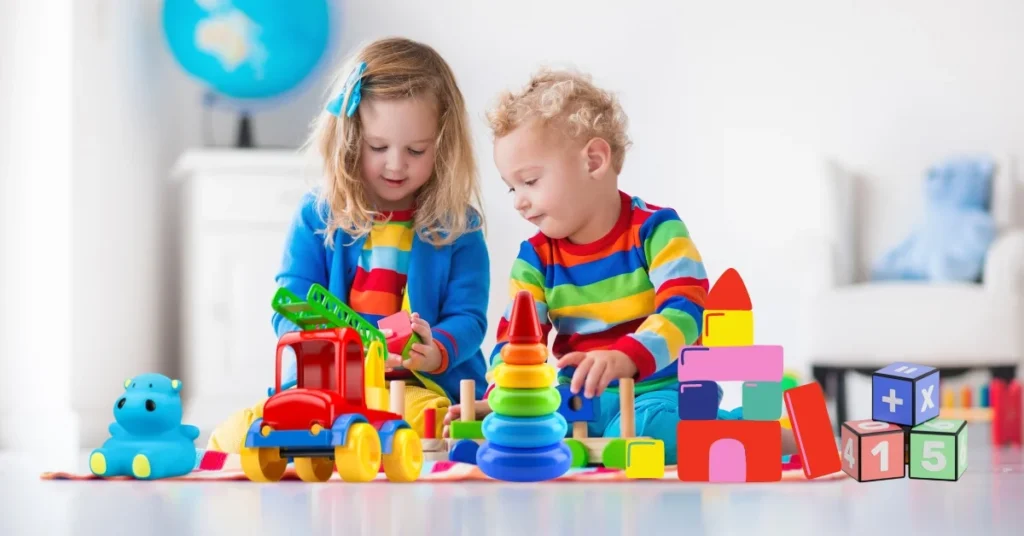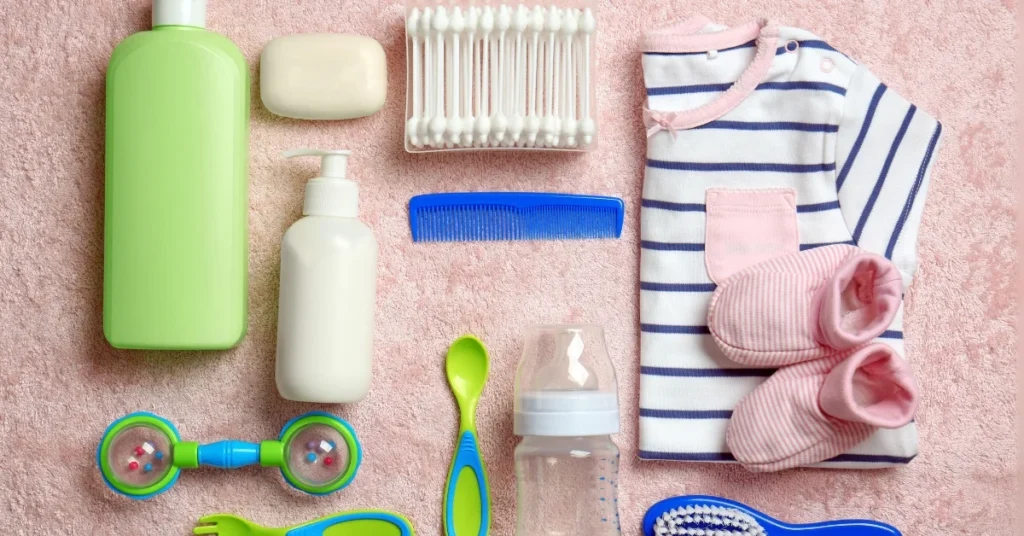In the world of early childhood development, toys are much more than mere entertainment—they’re powerful tools for learning and growth. Educational toys stimulate creativity, critical thinking, fine motor skills, and social development, making them ideal for supporting children at every stage. Whether it’s a simple set of blocks or an advanced coding kit, the right educational toys can encourage a lifelong love of learning in young minds.
Here’s a guide to selecting Top Educational Toys for Children Lumolog that are tailored to specific age groups and learning goals.
The Importance of Educational Toys
Educational toys can significantly aid children’s growth, providing a playful yet structured way to develop essential skills. These toys target cognitive development, physical coordination, social interaction, and creative exploration. By encouraging curiosity and interaction, educational toys can help children build foundational skills that last well into adulthood.
Choosing the Right Toy by Age Group
Infants (0-12 Months)
Infants thrive on sensory engagement. Toys for this age should be soft, safe, and stimulating to encourage babies to explore through sight, sound, and touch.
- Sensory and Motor Development: Soft blocks, rattles, and activity gyms promote tactile exploration, visual engagement, and motor development. These toys encourage infants to reach, grasp, and move, laying the groundwork for motor skills and coordination.
- Recommended Toys: Fabric books with textures and mirrors, rattles, and activity gyms with dangling toys are ideal. For example, soft books with bright colors stimulate visual curiosity, while activity gyms encourage tummy time and motor skills.
Toddlers (1-3 Years)
Toddlers are ready for toys that support exploration, basic problem-solving, and role-playing, which lay the groundwork for language and social skills.
- Exploration and Problem-Solving: Shape sorters, building blocks, and simple puzzles develop hand-eye coordination, spatial awareness, and fine motor skills. Shape sorters, for instance, teach children about colors, shapes, and sizes.
- Pretend Play: Toys like play kitchens and toolsets promote imaginative play, allowing toddlers to imitate adult activities and develop early social skills.
- Recommended Toys: Building blocks, shape sorters, and role-play items like doctor kits are ideal for toddlers.
Preschoolers (3-5 Years)
Preschoolers are highly imaginative and curious, making this a perfect time to introduce basic STEM toys and creative play items.
- STEM and Creativity: Magnetic tiles, beginner science kits, and basic art supplies foster creative expression and early scientific inquiry.
- Social and Emotional Learning: Games that involve cooperation or following simple rules—such as board games—encourage social interaction and teamwork.
- Recommended Toys: Magnetic building sets, beginner science kits, and basic board games that introduce teamwork.
School-Aged Children (6+ Years)
For school-aged kids, toys that focus on critical thinking, problem-solving, and advanced skill-building are ideal.
- Advanced Problem-Solving and STEM Skills: Coding robots, complex building kits, and science experiments allow older children to engage with technology and engineering in fun, interactive ways.
- Strategy Games: Games like chess and Scrabble build strategic thinking, while puzzle-based toys challenge critical thinking skills.
- Recommended Toys: Coding robots, construction kits, and more advanced board games are excellent choices for this age group.
Key Categories of Educational Toys
STEM Toys
STEM toys support Science, Technology, Engineering, and Math skills. From coding robots to building blocks, these toys teach logical thinking and problem-solving. Some popular STEM toys include coding robots that introduce programming basics and building kits that foster spatial awareness and creativity.
Arts and Creativity
Creativity-focused toys—such as painting sets, musical instruments, and costumes—encourage children to express themselves, which can support language development, emotional expression, and imaginative play.
Fine and Gross Motor Skills
Toys like stacking blocks, ride-on toys, and puzzles help develop both fine and gross motor skills. Fine motor skills involve smaller movements, such as holding a pencil or stacking small objects, while gross motor skills are larger movements, like running or jumping.
Language and Literacy
Language-focused toys such as storytelling games, alphabet blocks, and interactive books build early literacy skills. Many toys today combine visual and auditory elements to promote word recognition, spelling, and storytelling, preparing children for reading.
Top 10 Recommended Educational Toys
- LEGO Classic Bricks – Ideal for building creativity and spatial skills.
- Shape Sorters – Excellent for toddlers to learn shapes, colors, and problem-solving.
- Coding Robots (e.g., Botley or Cubetto) – Interactive robots introduce kids to coding basics.
- Magnetic Building Tiles – These stimulate creative building, spatial awareness, and fine motor skills.
- Doctor or Chef Play Sets – Promotes imaginative role-play, social skills, and empathy.
- Simple Board Games (e.g., Memory games or Candy Land) – Teach rules, teamwork, and patience.
- Kinetic Sand – Great for sensory play and motor skill development.
- Science Experiment Kits – Support critical thinking and scientific curiosity.
- Musical Instruments – Foster creativity, rhythm, and auditory skills.
- Interactive Books and Alphabet Blocks – Develop early literacy, word recognition, and language skills.
How to Encourage Productive Play
Balance Screen and Physical Play
It’s essential to balance screen time with physical play. Limit screen-based activities and encourage open-ended, hands-on toys that foster creativity and physical movement.
Parental Involvement
Playing alongside your child enhances bonding and learning. Reading together, engaging in pretend play, or building with blocks helps reinforce the value of shared learning experiences.
Open-Ended Play
Encourage open-ended play with toys like blocks or art supplies, allowing children to explore their imaginations. Open-ended toys enable children to experiment and think critically without predefined instructions.
Conclusion
Educational toys serve as more than just fun—they are foundational tools for children’s growth and development. By choosing age-appropriate, skill-focused toys, parents can support their child’s learning journey in exciting, meaningful ways.
FAQs About Top Educational Toys for Children Lumolog
What makes a toy “educational”?
An educational toy is designed to support the development of cognitive, motor, social, or language skills. These toys encourage skill-building through interactive play that promotes curiosity, problem-solving, and creativity.
Can educational toys be fun as well?
Absolutely! The best educational toys are engaging and enjoyable, encouraging children to learn while they play. They spark interest and exploration, which are essential components of effective learning.
How do I know which educational toy is right for my child’s age?
Look for toys that match your child’s developmental stage. Infants benefit from sensory toys, toddlers from exploration and role-play, preschoolers from STEM basics, and older children from more complex problem-solving and strategic toys.
Do educational toys need to be high-tech?
No, many effective educational toys are simple, low-tech items like puzzles, building blocks, and art supplies. These toys offer open-ended play, which is valuable for imagination and cognitive development.
How can I encourage my child to play more productively?
Set up a balanced play environment that includes screen-free options, participate in play activities together, and encourage open-ended play. This helps children engage deeply and learn from their play.



